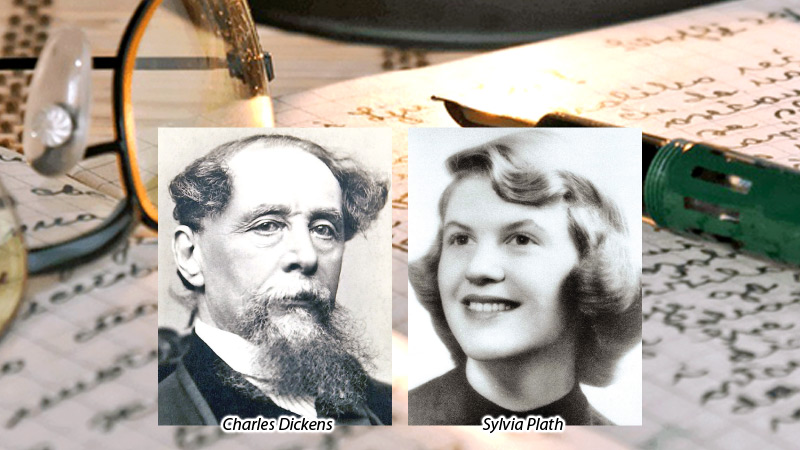Writing an absorbing, exhilarating and spellbinding fiction is a fierce battle that only a cross section of the writing community would conquer while only a handful of novelists are able to cherish the prestige of being a recipient of an acclaimed award.
I heard of a historian who is passionate about American literature, sharing on a renowned international media that eloquent and diligent novelists need ample room to generate good ideas and to decorate the same in his manuscript.
Novelists and poets of the likes of Ernest Hemingway and Sylvia Plath who reshaped the domain of American literature, despite their personal battles with depression and eventual suicides, maintained a tremendous sense of stoicism and composure to keep words flowing from their mind.
The Nobel Prize in Literature and the Pulitzer Prize in Literature, awarded to Hemingway’s “The Old Man and the Sea” as well as the latter in its category for poetry awarded posthumously to Plath’s “The Collected Poems” bear testimony to the self-restraint in writing endeavoured by these two phenomenal forces in the world’s citadel of English Literature.
Literary harvest
A novelist’s further fortitude and forbearance are the pillars that aid him to revisit a certain piece of writing consistently until it yields the expected literary harvest.
Despite the completion of a novel generally may run into a period of six months to a year, there are statistics where the completion of some masterpieces had even taken decades; The Cantos, collection of poems by Ezra Pound with almost six decades while “The Boy in the Striped Pyjamas” by Irish novelist John Boyne being completed in just 2 1/2 days are the classic examples in this discipline.
I have my personal struggles in scheduling my words that could give me the celebrated title of “Novelist”. However, on a bleak and crisp afternoon with a sense of intense and profound angst and jitter, whilst having worries over a poorly written but richly castigated manuscript, I was forced to look for something that could fine tune my words. Such encounters discourage my lust of being a novelist and I research the traits of them.
I am in a haste of elucidating and igniting my abandoned manuscript and meanwhile I would settle myself with the arrival of an imaginary command that could cast a spell on my poor vocabulary. The spell keeps reminding me of the qualities of novelists that I could sow in my field of writing.
I am a fan of Dickensian literature and Charles Dickens, the greatest English novelist of the Victorian era decorated my childhood with his ever celebrated priceless and timeless masterpieces Oliver Twist and David Copperfield; the former is frequently cited as the very first Victorian novel that features a child protagonist.
Whilst my inner soul still turns up to the dear departed, unsurpassed and profound novelist in Dickens, as and when my desire of writing a fiction is battled by my sheer thoughts of laziness, I rushed to find as to how his daily routines were shaped.
To my utter astonishment, I find that Dickens had his very unique style of being dedicated to his writing where he had adopted a specific schedule that is popularly known as “Methodical and Ordely (as that of a) City Clerk”; gifting more than a dozen novels to the reading public across the world, Dickens, initially having had a life of a night Owl, for five hours, starting from nine in the morning is said to have attended to his writing with a short break only taken for lunch.
No top-notch novelist is born overnight. A concerned novelist would need a multiple number of moons to develop the traits of the likes of Charles Dickens; I may keep my lust of inducting a fiction at bay.
Genius
The glowing and evocative imaginations that translated Dickens thoughts into words made him a genius in his selected field of fiction writing; his social consciousness as well as that of his prodigious and breathtaking ability of creating catchy and enduring characters which may not compromise with their knack of being incredibly natural is the secret for his popularity, even despite by the fact that he passed away over a century and half ago.
The other day, a dear chum of mine who has widely read Shakespearean literature during the run up to his PhD defence suggested me to keep my time occupied with “A Man’s Place”- (La Place) by Annie Ernaux, the 84-year- old winner of the Nobel Prize in Literature in 2022; my crony has read the book just in one sitting having a pricey and extravagant hot chocolate with marshmallows at an opulent restaurant in grand overpowering Opera rich Vienna.
He said me that he was immediately and immensely taken by Ernaux’s simple but spot-on style that invades the corridors of power in writing citadels. Ernaux would probably be another huge source of inspiration that could take my hidden words out of the carpet.
During a certain afternoon, having spent a couple of skimming hours in several bookstores in the city, I found myself being engrossed and moved by a deep sense of belonging in the landscape; the minefield of information that I grabbed over the essence of fiction writing made me a shielded and cautious place itself that I could repeatedly return to. The tears in the chapters of my intended fiction will be my bread and butter.









